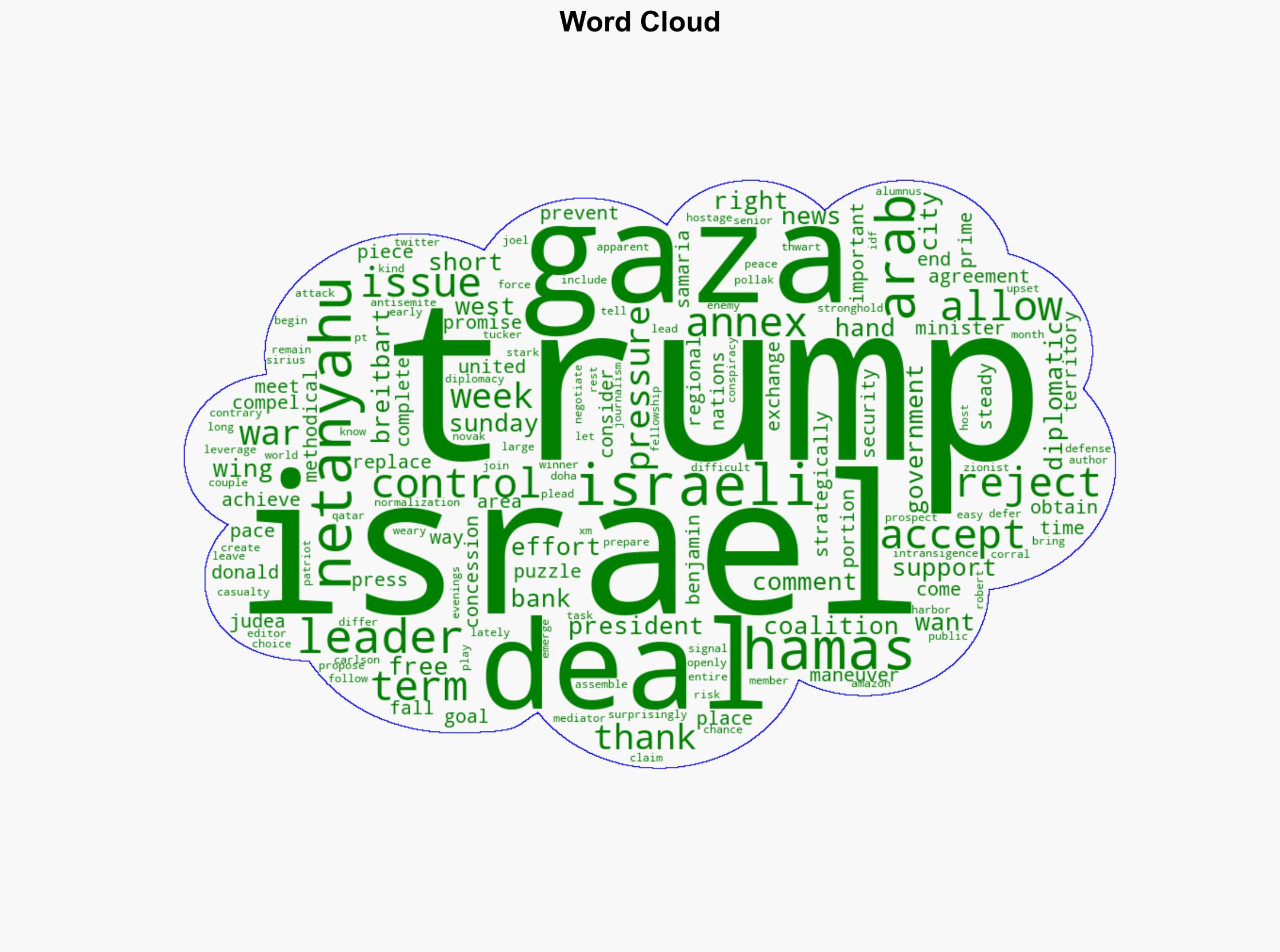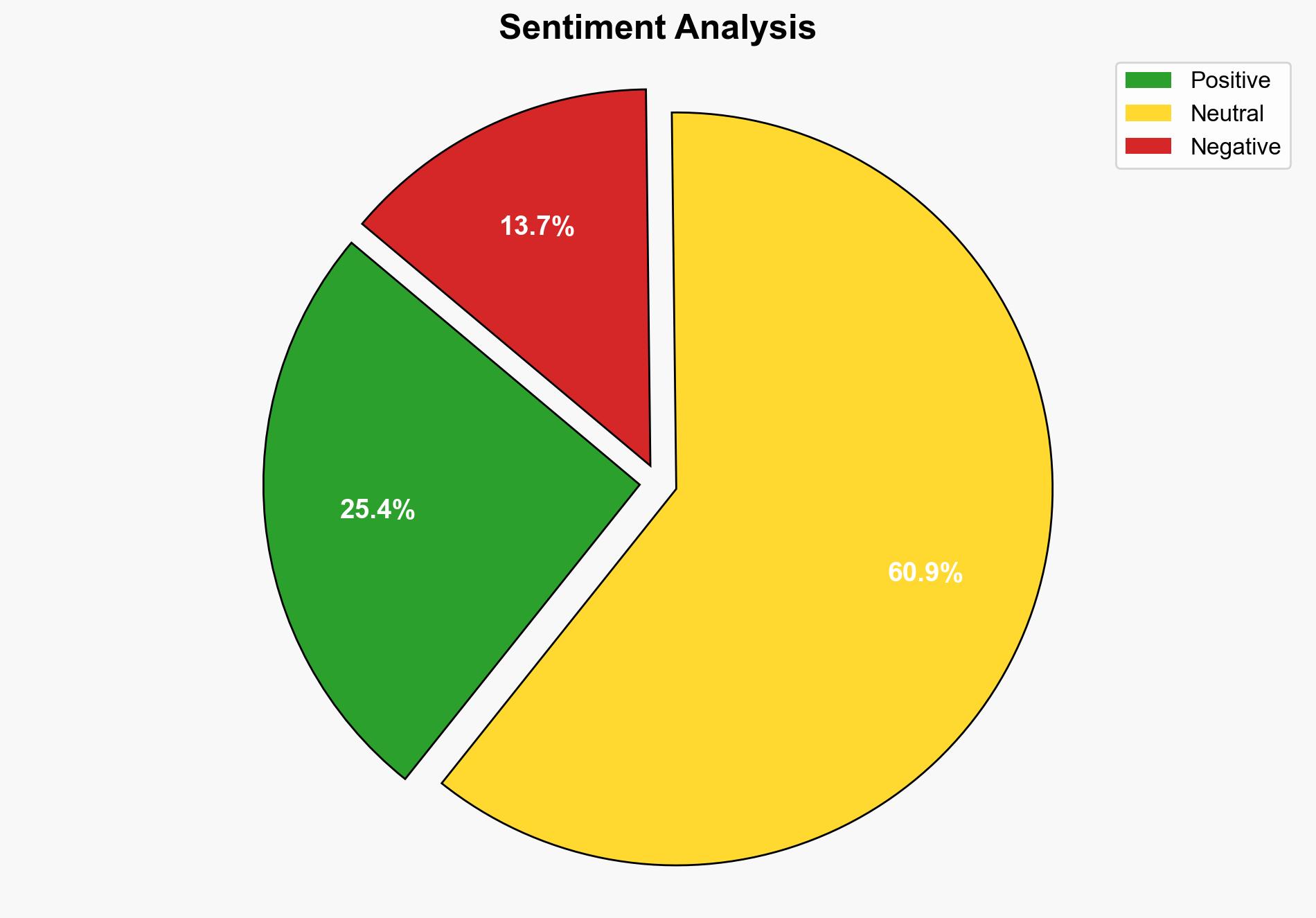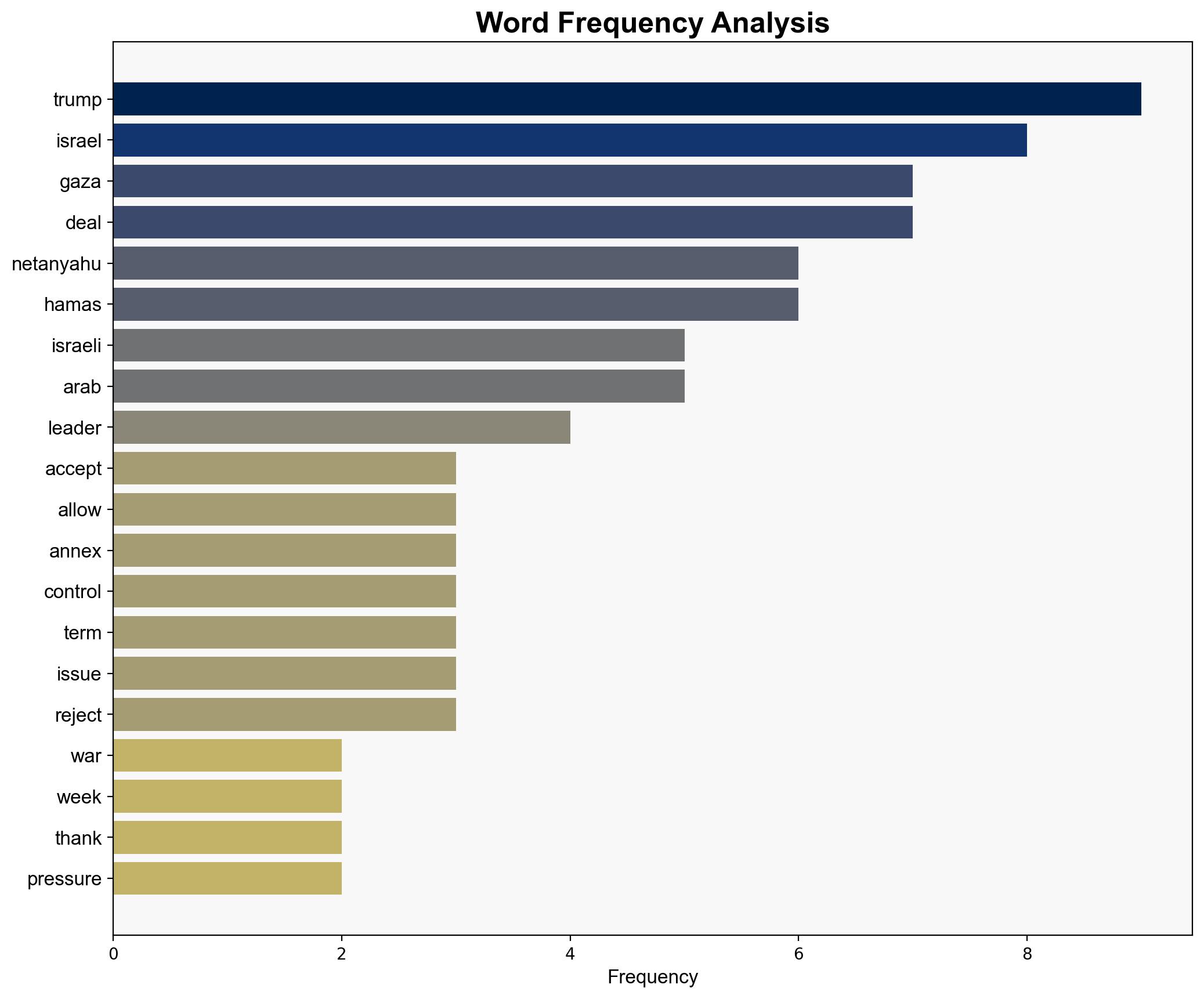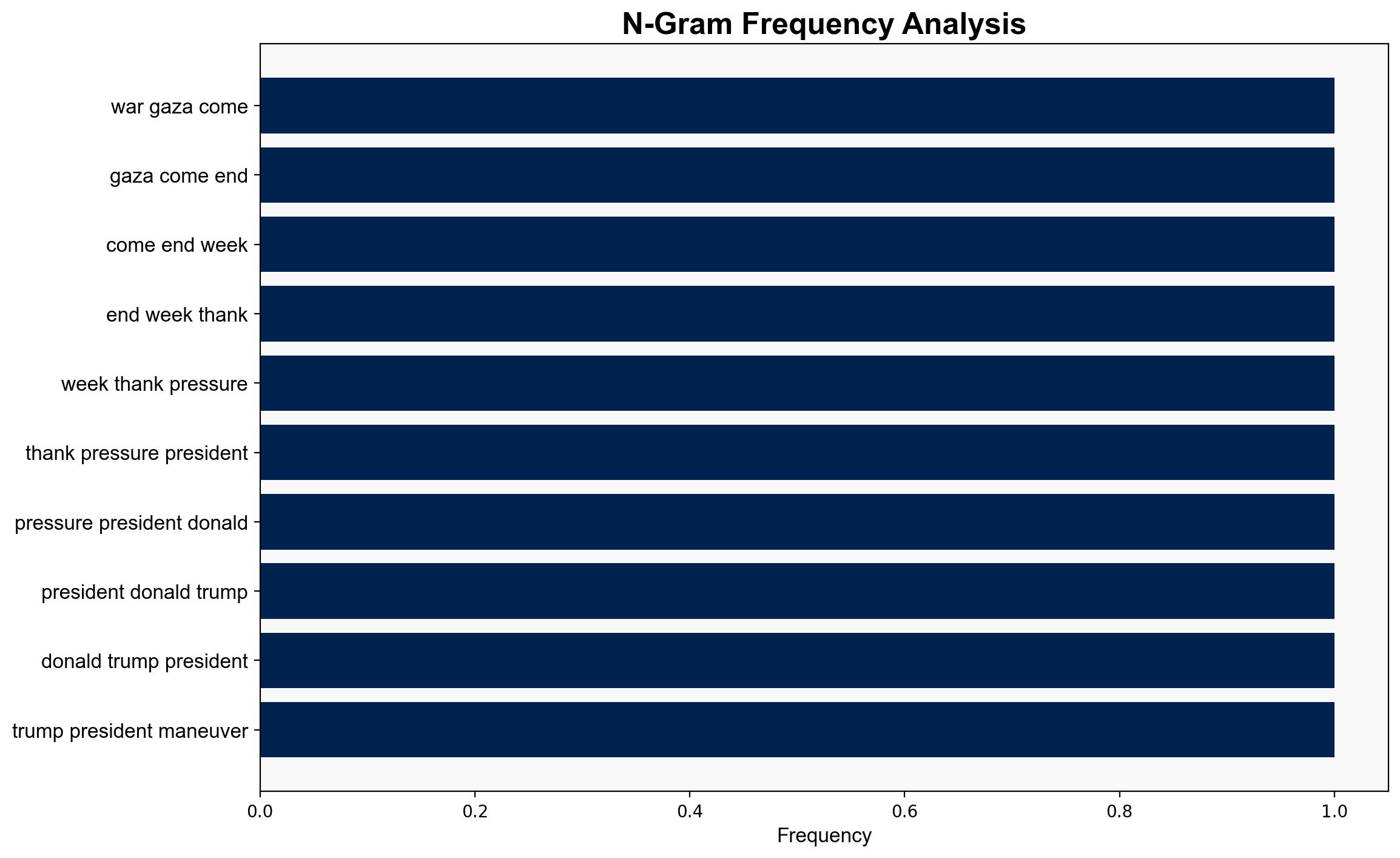Trump Appears to Strong-Arm Netanyahu Toward Gaza Deal – Breitbart News
Published on: 2025-09-29
Intelligence Report: Trump Appears to Strong-Arm Netanyahu Toward Gaza Deal – Breitbart News
1. BLUF (Bottom Line Up Front)
The analysis suggests two main hypotheses regarding the diplomatic maneuvers between Donald Trump and Benjamin Netanyahu concerning the Gaza situation. The first hypothesis posits that Trump is leveraging diplomatic pressure to achieve a regional peace deal, while the second suggests that Netanyahu is using Trump’s efforts to strengthen his domestic political position. The first hypothesis is better supported by the available intelligence. Confidence level: Moderate. Recommended action: Monitor developments for shifts in regional alliances and prepare contingency plans for potential Israeli domestic political instability.
2. Competing Hypotheses
Hypothesis 1: Trump is actively pressuring Netanyahu to accept a regional peace deal that involves significant concessions by Israel, aiming to stabilize the region and enhance U.S. influence.
Hypothesis 2: Netanyahu is using Trump’s diplomatic efforts as a means to consolidate his political position domestically, portraying himself as a leader capable of resisting external pressure while maintaining Israel’s strategic interests.
Using the Analysis of Competing Hypotheses (ACH) 2.0, Hypothesis 1 is more supported due to Trump’s meetings with Arab leaders and the strategic alignment of a regional coalition. Hypothesis 2 lacks substantial evidence of Netanyahu’s political maneuvers beyond internal coalition dynamics.
3. Key Assumptions and Red Flags
– Assumption: Trump’s diplomatic efforts are primarily aimed at regional stability rather than domestic political gains.
– Red Flag: Lack of explicit statements from Netanyahu regarding his stance on the proposed deal.
– Potential Cognitive Bias: Confirmation bias in interpreting Netanyahu’s actions as solely politically motivated.
– Deception Indicator: Contradictory reports on the level of support from Arab leaders for the proposed deal.
4. Implications and Strategic Risks
– Potential for increased regional instability if the deal fails, leading to escalated conflict in Gaza.
– Risk of domestic political upheaval in Israel if Netanyahu’s coalition perceives concessions as a betrayal.
– Economic implications for Israel and neighboring countries if regional tensions escalate.
– Cybersecurity threats as regional actors may exploit the situation to launch cyber-attacks.
5. Recommendations and Outlook
- Engage in diplomatic backchannels to gain insights into Arab leaders’ positions on the deal.
- Prepare for potential escalation scenarios in Gaza, including humanitarian aid and military readiness.
- Scenario-based projections:
- Best Case: Successful deal leading to regional stability and economic growth.
- Worst Case: Breakdown of negotiations resulting in intensified conflict and regional isolation of Israel.
- Most Likely: Prolonged negotiations with intermittent escalations in Gaza.
6. Key Individuals and Entities
– Donald Trump
– Benjamin Netanyahu
– Arab leaders involved in the negotiations
– Hamas
7. Thematic Tags
national security threats, regional focus, geopolitical strategy, Middle East diplomacy




